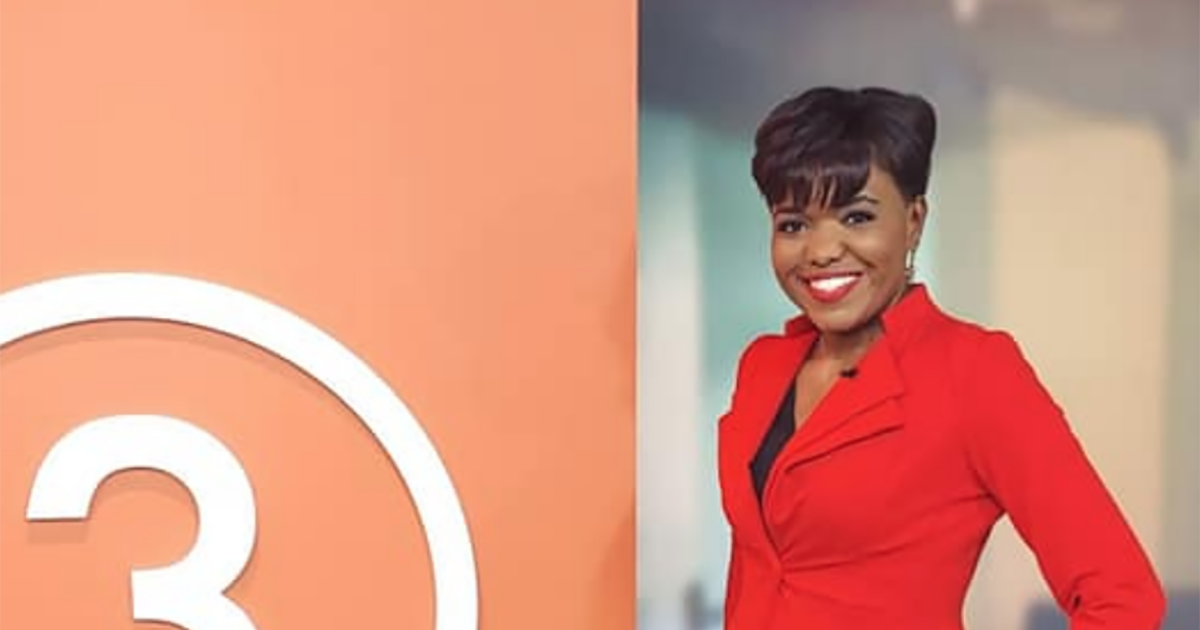Danielle Wiggins is Back At Work After Breast Cancer Treatment
- Danielle Wiggins, the beloved Cleveland, Ohio-based television news anchor fighting breast cancer, returned to work this week after undergoing surgery to remove the cancer.
- In honor of Wiggins, 3News launched a new health series called Do it for Danielle in order to raise awareness for the importance of performing self-exams.
- SurvivorNet experts say that it’s very important for women to get a mammogram every year, especially if you haven't yet gone through menopause.
Those were the words of Danielle Wiggins, the beloved Cleveland, Ohio-based television news anchor fighting breast cancer, as she returned to work this week.
Read MoreAppearing on air on Friday, May 6, Wiggins shared an update about her health before returning to work full-time.
"I feel good," she told her co-workers. "It's interesting because the last time we sat here we were in tears. There was a lot of fear because, for me, the unknown. I didn't know what stage it was. I didn't know if it (had) spread. I didn't know those things."
"Right now, those unknowns have been answered," she added. "I had the surgery. They removed the detectable cancer. It was stage one. It did not spread, so it did not metastasize. That was great news."
In honor of Wiggins, 3News launched a new health series called Do it for Danielle in order to raise awareness for the importance of performing self-exams.
Danielle Wiggins' Breast Cancer Diagnosis
Wiggins revealed in March that she had been diagnosed with breast cancer. She said her journey began at the end of last year, when she turned 40 years old. The Cleveland Clinic sent her an email to schedule a mammogram (the process of using low-energy X-rays to examine the breast for cancer diagnosis and screening).
She scheduled the appointment for December, but in November, she touched her breast tissue and felt something that didn't feel right. "Something feels off with this," she remembered thinking.
Once she had the mammogram, the results came back abnormal, so she was scheduled for a diagnostic mammogram. The procedure showed a small lump the same one Wiggins had felt months prior. She went in for a biopsy two weeks later, which confirmed her worst fear: she had breast cancer.
Wiggins asked her doctor if there was something she did wrong to cause this unfortunate diagnosis, but the doctor said: "Sometimes it's just bad luck."
"She said I had the most common form, but she said, 'But you're 40.' I started crying. I just learned that nationally the guideline is 50 years old to get a mammogram. If I would not have gotten a mammogram until I was 50, I would not have made it until I was 50 years old," Wiggins said.
"I don't know how I feel sometimes," she added. "It's just moment by moment. In this moment, I feel great. Maybe in five more minutes it will be like, 'Oh my gosh, I cannot believe I have cancer. I am only 40 years old.'"
"I want life. I want people who bring life around me. On the morning show, it has been a great distraction. You'll hear me in the background laughing, but it helps because it brings life."
Last month, she disclosed that she had surgery for her breast cancer and it "went well."
"My medical team at the Cleveland Clinic was able to extract the known cancer through surgery. I was recently informed the cancer was caught in the early stages," she said in an April 5 Facebook post.
And now, she’s back at work since she didn’t have to go through with chemotherapy. From all of us here at SurvivorNet, congratulations, Danielle!
The Importance of Getting a Mammogram
Dr. Connie Lehman, director of the breast imaging clinic at Mass General Hospital in Boston, previously SurvivorNet that it’s very important for women to get a mammogram every year, especially if you haven't yet gone through menopause.
When Should I Get a Mammogram?
"We know that cancers grow more rapidly in our younger patients, and having that annual mammogram can be lifesaving," Dr. Lehman said of the importance of getting a mammogram to diagnose breast cancer. "After menopause, it may be perfectly acceptable to reduce that frequency to every two years."
"But what I'm most concerned about is the women who haven't been in for a mammogram for two, three, or four years, those women that have never had a mammogram," she added. "We all agree regular screening mammography saves lives."
"I want to be completely clear: If you are between 50 and 74 and you have not had a mammogram in the last two years, you are overdue. Please get a mammogram."
Learn more about SurvivorNet's rigorous medical review process.


